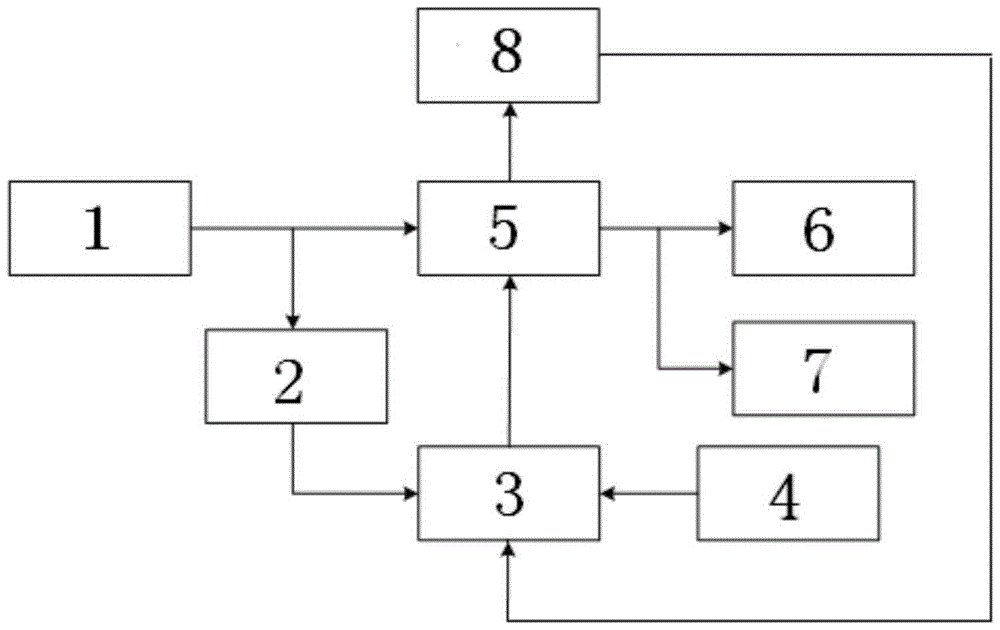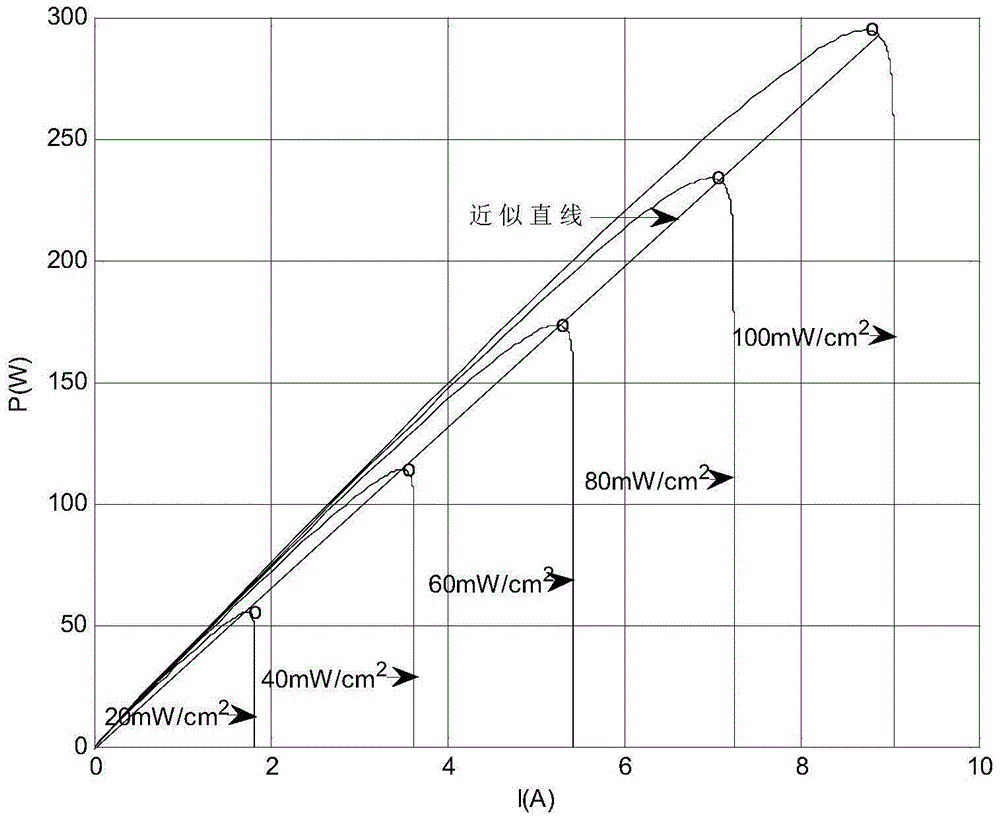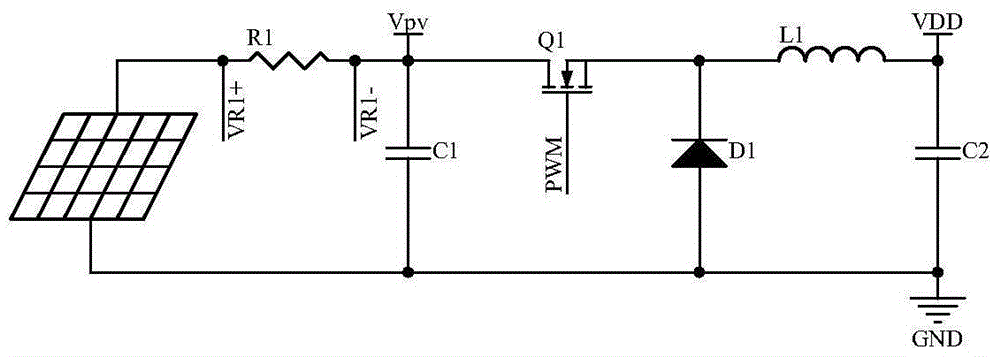A self-powered solar controller
A solar controller, self-powered technology, applied in control/regulation systems, instruments, photovoltaic power generation, etc., can solve the problems of unusable solar controller, high cost, complicated circuit, etc., to improve photoelectric conversion efficiency, avoid power Oscillating, easy-to-use effects
- Summary
- Abstract
- Description
- Claims
- Application Information
AI Technical Summary
Problems solved by technology
Method used
Image
Examples
Embodiment Construction
[0025] Such as figure 1 As shown, the present invention includes that the voltage output by the photovoltaic cell 1 is reduced by the DC-DC conversion module 5 to supply power to the load circuit module 6 and the battery charging circuit 7. The photovoltaic cell 1 is connected to the current acquisition module 2 at the same time; the controller is also provided with illuminance The acquisition module 4 transmits the collected illumination information and the current information of the current acquisition module 2 to the control circuit module 3, and the control circuit module 3 outputs a PWM signal to drive the power switch device of the DC-DC conversion module 5 to work.
[0026] Current acquisition module 2, which uses high-precision, high-power, and low-resistance current sensing resistors to convert current signals into voltage signals to improve sampling accuracy and reduce costs. The current acquisition module also regulates the collected voltage through a differential propo...
PUM
 Login to View More
Login to View More Abstract
Description
Claims
Application Information
 Login to View More
Login to View More - R&D
- Intellectual Property
- Life Sciences
- Materials
- Tech Scout
- Unparalleled Data Quality
- Higher Quality Content
- 60% Fewer Hallucinations
Browse by: Latest US Patents, China's latest patents, Technical Efficacy Thesaurus, Application Domain, Technology Topic, Popular Technical Reports.
© 2025 PatSnap. All rights reserved.Legal|Privacy policy|Modern Slavery Act Transparency Statement|Sitemap|About US| Contact US: help@patsnap.com



